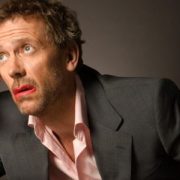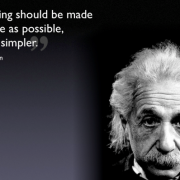Your audition experience can certainly mean the difference between executing a fine performance, that puts you well and truly under notice, or not being considered because you weren’t able to offer your best work.
For many actors, the audition process can pass as a blur, without you ever having had control over the 10 or so minutes in the casting room. Numbers of audition workshops, or classes, cater to refining this particular set of skills.
In order to discern which may hold the greatest benefit, I have compiled a list of the key things to look for, to ensure you get the most out of it and, ultimately, acquire a process that allows you to nail your audition in one go.
#1. Maximum time in front of the camera
Simply being put under audition circumstances will not necessarily mean that you master the requirements. You will need to do it again, and again, until you develop a clear mind during the audition.
Look for a course which allows you to deliver your audition multiple times: twice to begin, then a third after some time to reflect and make any adjustments. This is invaluable practice and education.
You might do your first two runs under professional conditions, then have a conversation with the ‘casting director’ (course instructor) before you quickly develop the final run.
Your aim is to spend as much time as possible in front of the camera under audition-like conditions. To maximise this experience, you will be looking for a class where there are no more than eight participants.
How does this help you?
In real auditions you may be afforded either one, two, or even three opportunities to run your scene, or commercial script. Rarely will you be allotted more than three.
You will need to react quickly to any feedback given between takes, and for most of us that will mean having spent lots of practice time in thinking and adjusting quickly. If – in a workshop – you are only running your scene once or twice without sufficient time to learn exactly how to adjust your performance, then the chances are that you might never become comfortable with the genuine audition.
#2. Filmed audition runs for review
A course that offers you an opportunity to view your practice auditions between class times is thinking of your development in an appropriate manner.
Viewing your filmed auditions multiple times during the week will allow you to study, analyse, and return with specific goals for the next run in class. To have a specified amount of time each week to review and discuss the previous week’s ‘audition’ will further establish a proper sense of development throughout the course.
#3. Script delivery to simulate real life
To approximate the real audition process, you want to be receiving your training scripts via email in a series of time-frames that one might expect as an actor.
If the course runs for a number of weeks then receiving new scenes on different days each week will aid the preparation of the actor. For example; you might receive the script somewhere between 3 days and 3 hours before the class, or you might not receive the script until you arrive at the class (to help with ‘cold’ reading).
#4. Script variety
Audition scripts should be a varied mix of film, theatre, television (series, soaps, mini-series etc) and commercials. Differing genres and styles of writing will afford the actor the opportunity to grasp the differing requirements for each genre.
#5. Casting room personalities
Whilst most casting sessions endeavor to provide a comfortable environment for the actor to freely give their best work, there will always be differing personalities at the helm of the casting session. Learning how to adjust to specific interactions is part of the process.
Therefore, it is useful for acting students working on their audition technique to experience a range of the differing personalities of casting directors they are likely to encounter in the casting room.
#6. Individual tuition within a group setting
Having been a ‘reader’ at literally hundreds of auditions I can say with some confidence that no two actors will audition exactly the same way, and everyone has their own way of dealing with auditions, to varying degrees of success.
It is important that the course instructor has the ability to evaluate each student individually as to their strengths and weaknesses, habits, and any difficulties they may bring with them into the course. What works for one actor may not bring the same result for another, so understanding each student requires a level of consideration for the individual’s needs.
Establishing listening and interpretive skills, aiding the student in understanding the difference between blindly following stereotype and original creation within the genre required, plus educating the student as to their suitability for particular roles, should all be a part of a solid audition course.
#7. Create memorable auditions – dynamic and daring
A good audition course, at the same time as teaching the disciplines required to audition successfully, will encourage daring in the student’s work. To audition well is a powerful goal; another goal is to audition dynamically so that – even if you don’t get this gig – the casting person remembers your performance for the next time.
What you are aiming for is for them to remember your professionalism, creativity, spontaneity, ability to adjust quickly and, above all else, that you are someone they would like to work with, for all the right reasons.
Whilst there is little doubt that a well prepared one- or two-day audition workshop will inspire you, it won’t, realistically offer you the chance to really study your own technique in any extended or ultimately beneficial way.
To make long-lasting changes and adjustments to your audition process that will genuinely put you in control of your audition room performances it is important to spend some serious training time working on it.
Bruce Alexander is an acting teacher of more than 25 years who moved to the UK in 2013, and now teaches from his Melbourne Acting Studio based in central London. He is held in the highest esteem by casting companies and actors agents for delivering innovative professionals into the acting industry. Bruce is celebrated for training students to learn how their brains work artistically, how to overcome any fear and doubts, and how to find and develop their own unique abilities that will give them the very best opportunities to showcase their talents in auditions and performances.





